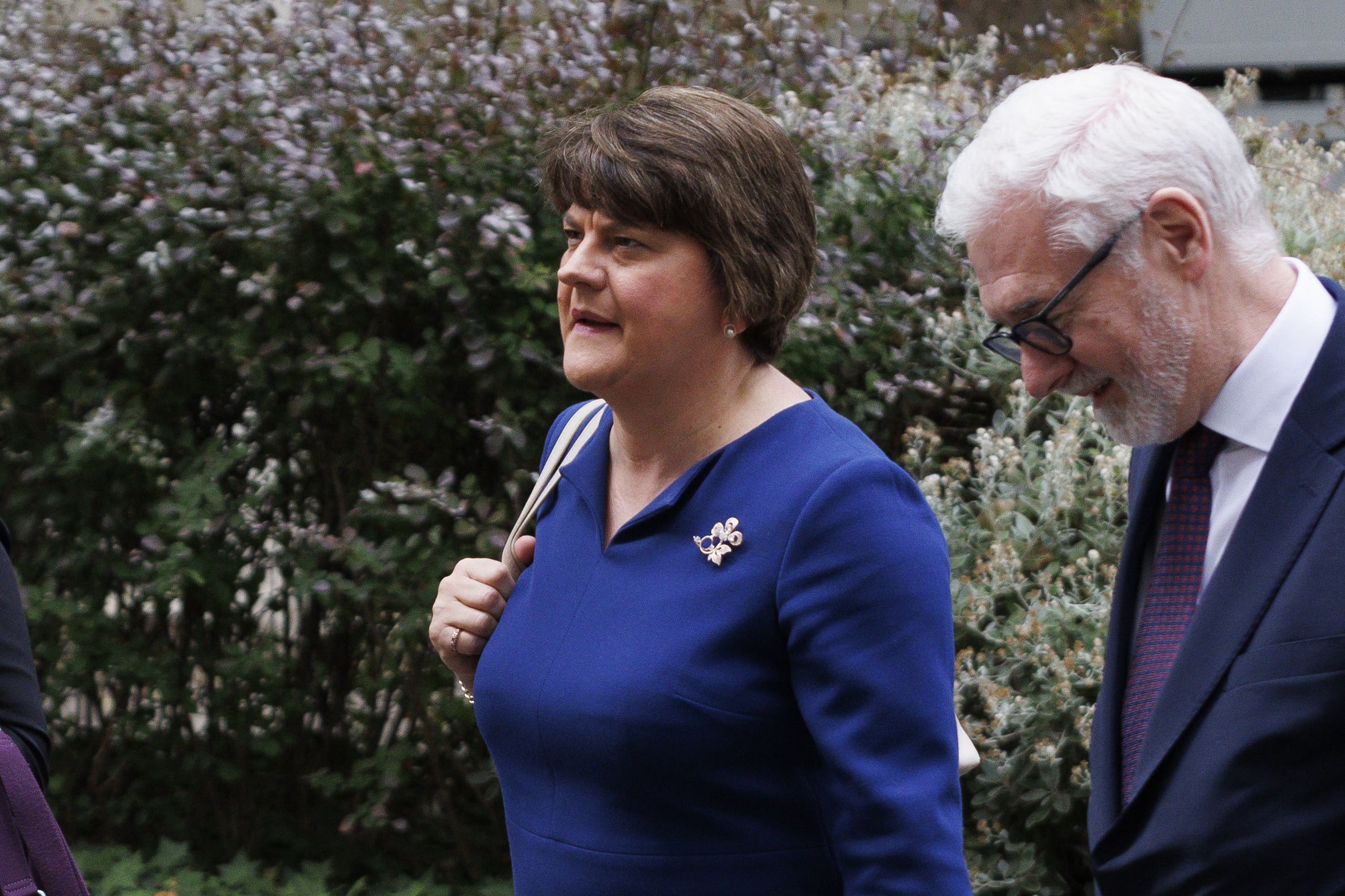Not enough consideration was given to impact of Covid lockdown – Foster
The former NI First Minister and DUP leader is giving evidence to the UK Covid Inquiry.

Your support helps us to tell the story
From reproductive rights to climate change to Big Tech, The Independent is on the ground when the story is developing. Whether it's investigating the financials of Elon Musk's pro-Trump PAC or producing our latest documentary, 'The A Word', which shines a light on the American women fighting for reproductive rights, we know how important it is to parse out the facts from the messaging.
At such a critical moment in US history, we need reporters on the ground. Your donation allows us to keep sending journalists to speak to both sides of the story.
The Independent is trusted by Americans across the entire political spectrum. And unlike many other quality news outlets, we choose not to lock Americans out of our reporting and analysis with paywalls. We believe quality journalism should be available to everyone, paid for by those who can afford it.
Your support makes all the difference.Not enough consideration was given to the impact of lockdown measures introduced in response to the Covid-19 pandemic, Baroness Arlene Foster has said.
The former Northern Ireland first minister and DUP leader also told the UK Covid-19 Inquiry that she believed that the region had been left by the Westminster government “without ministerial cover” during a period when the Stormont powersharing institutions had collapsed in the years before the pandemic.
The inquiry is hearing from Northern Ireland witnesses this week as it examines how prepared the UK was ahead of the coronavirus pandemic which struck in early 2020.
It was felt there was a need to lock down in a particular way. I do not think that enough consideration was given to the impact, the non-health impact
The former first minister said when Covid struck there was a great fear and a panic which ensued.
She added: “It was felt there was a need to lock down in a particular way.
“I do not think that enough consideration was given to the impact, the non-health impact, and there were many health impacts as well that were not foreseen.
“The devastating impact that Covid had on so many families in Northern Ireland stays with me because it was a devastating impact, many people lost loved ones in devastating circumstances that have been set out by the bereaved families’ statement.
“I want to take this opportunity to give them my condolences and my sympathies.”
Much of the questioning focused on the civil contingency planning for emergency events in the years before the pandemic struck.
Northern Ireland was without devolved government from 2017 following the resignation of then-deputy first minister Martin McGuinness.
It was not restored until the New Decade, New Approach deal in January 2020 which put ministers in post just before the Covid pandemic hit the region.
Then-first minister Baroness Foster, along with former deputy first minister Michelle O’Neill and former health minister Robin Swann, were the most high profile Stormont ministers leading the Covid response.
Ms O’Neill is due to give evidence to the inquiry on Wednesday, while Mr Swann gave evidence last week.
Lead counsel to the inquiry Hugo Keith asked Baroness Foster if she agreed that the absence of a Stormont executive in those years had left Northern Ireland’s public services in a “state of decay and stagnation”.
She said: “There were no ministers in place during that time.
“I think when you look at the fact that the Northern Ireland Office took a policy decision not to intervene at that time but instead leave Northern Ireland without any ministerial cover was something that I feel I need to comment on.
“The Westminster Government is sovereign at all times and if there is a deficiency in the Northern Ireland administration then those people in Westminster with responsibility for Northern Ireland have a responsibility; that is true whether it is in relation to female reproductive rights or indeed resilience and emergency planning.
“I would think that was a gap which should have been dealt with at that time.”
Mr Keith asked why Westminster could not have stepped in to deal with spending pressures within public services.
Baroness Foster said: “That is the point I am making, they should have stepped in.
“If there was a difficulty with resourcing in Northern Ireland particularly around the important issue of resilience and planning for emergencies then there was a duty on the Westminster Government to note that and to take the appropriate action.”
The former first minister also said she had been proud of the response to the pandemic from the Northern Ireland Civil Service and the health service.
However, she said she was unsure if any amount of planning would have had Northern Ireland “fit for purpose” to deal with the scale and nature of the pandemic.
She added: “The number one risk on the risk register across the UK was for a flu pandemic and what came towards us was not a flu pandemic but a very transmittable disease in the community.
“Therefore the need to scale up and have the capability to deal with that was something we had to dig very deep into very quickly.”
She also referred to the Bengoa Report, which was designed to transform the health service in Northern Ireland, which was delivered to ministers in 2016.
Baroness Foster said: “As a result of the Executive collapsing in January 2017 the leadership required to take those reforms forward was not present for three years and then because of the pandemic again those reforms have not been able to be taken forward and now we are in a situation where we have a report from 2016 which has not been implemented.”